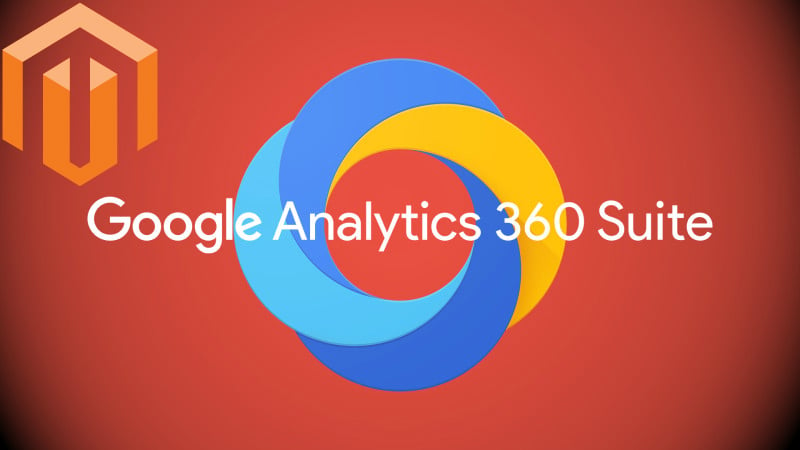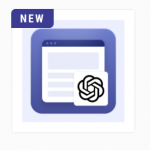DIY SEO: Google Analytics 360

On the 15th of March, Google announced the launch of Google Analytics 360 Suite – a full-fledged set of marketing analytics tools aimed specifically at large businesses and corporations. The major idea behind this project is to help marketers and analysts to better understand consumer’s behavior and thus allow companies to get the best from their brand. Particularly, Google Analytics 360 Suite is what previous versions of Google Analytics lacked in terms of efficient performance: specialized testing platform, multiple integration features, better data management, improved collaborative potential, and adequate marketing channels evaluation. Containing six innovative and modified analytics products, Google Analytics 360 Suite is expected to become the most powerful E-Commerce tool of the year. And you can easily streamline the power of Magento Google Analytics 360 integration. We hope to update this DIY SEO post with appropriate information in the nearest future, but now let’s describe the new platform.

Table of contents
The aims of Google Analytics 360
As Google developers themselves , their first and major step was to simplify the whole process of marketing analysis for large-scale corporations struggling daily with accumulating and measuring huge junks of data from numerous channels. Based on the most frequent complaints coming from marketers and analysts all over the world, Google singled out the most relevant features to be introduced in their brand-new analytics project:
- Providing an easy way to track consumer’s activity at every significant point of interaction;
- Providing faster and more efficient computing tools for analyzing incoming data;
- Allowing broad collaboration and sharing opportunities for large marketing teams seeking instantaneous interaction and effective decision-making;
- Offering broad cross-tool integration for marketers to clearly see the results of a brand-customer interaction.
In result, all these features have been unified under the ultimate measurement solution Google Analytics 360.
Google Analytics 360 features
The whole solution consists of six primary tools, four of which are newly designed features while the rest are rather improved existing ones.
New features:
- Google Audience Center 360 (previously referred to as DoubleClick Audience Center) – Google’s first official data management platform (DMP) offering a high-end native integration with DoubleClick, AdWords, DSPs, and other third-party data providing services. These allow corporations to create effective audience segments, test their performance, and properly attract them across all major traffic sources.
- Google Optimize 360 – a brand-new optimization and testing tool for determining the best customer experiences across various alternatives of your website. You can use this product to experiment with new design or functional features on your site, estimate the resulting feedback from various audiences and implement real-time changes to keep your business competitive. Although Google Optimize 360 might in many ways resemble such popular services as Optimizely, the fact that it is integratable with other native Google tools makes it more valuable to Google-based businesses.
- Google Data Studio 360 – a simplified visualization and data presenting tool based on Google Docs framework. You can use this product to create customizable illustrative reports containing easy-to-read infographics and tables, and share them with your teammates in order to get to the best corporate decisions. Google Data Studio is also rich in collaboration tools that simplify and reinforce teamwork and interaction across staff.
- Google Attribution 360 – a tool providing marketers with an in-time fresh look at their expenditures, coming from both online and offline marketing channels. Depending on the tool’s measurements, you can improve your corporate ROI and re-evaluate your budget in a smarter way. It’s worth noting that Google Attribution 360 is actually former Adometry (another attribution company) acquired by Google in 2014 and later recreated from scratch.
Modified and rebranded features:
- Google Tag Manager 360 is a standalone product rather than a secondary tool, as it used to be in times of older Google Analytics. Although no particular modifications were introduced, the feature provides a simplified and faster website data capturing together with handy APIs contributing to a better marketing management process. You can also check out improved tagging possibilities, such as ability to create customizable tags that can be tracked for seamless conversion results.
- Google Analytics 360 is in fact a successor of Google Analytics Premium which is said to be the head of the whole analytics suite offering a set of primary measurement tools that help gather data from other Google-based features and accurately evaluate your overall performance, advertising results, and revenues. Nevertheless, it is not clear yet whether there are going to be any actual updates except for those concerning user interface.
Estimated launch dates and first tryouts
Google Analytics 360 is expected to be officially released in a few months. Meanwhile, users can have a free access to the full versions of Google Analytics 360 and Google Tag Manager 360. The four other newly introduced features are available in beta versions and were already tested by multiple large-scale companies, L’Oreal, Nest, Progressive, and GoPro are among them. We may as well expect full versions to be exclusive paid-for products aimed specifically at corporate E-Commerce clients. This, by the way, is the first time Google gave up their original free-to-use ideology in the field of analytics.
According to Google’s official blog post, they are going to bring more product-related insights in the coming weeks, so we hope to hear about other interesting features Google Analytics 360 can offer to E-Commerce businesses.
Magento Google Analytics 360
Here, you will find all necessary information about Magento Google Analytics 360 integration. We will describe both versions of our favourite ecommerce platforms from the perspective of powerful Google’s tool.
With this Magento 2 extension you will enhance your standard Google Universal Analytics Account with advanced features, go beyond the standard opportunities, and get a deeper insight into your ecommerce performance. The module will help you understand conversions due to a checkout sales funnel that shows where potential customers drop off during the checkout procedure. As a result, you will be able to eliminate mistakes improving your store performance and boosting conversions. Note that Fooman Google Analytics + tracks even such checkout sections that are retrieved via AJAX in case of one page checkout.
Besides, the extension takes care of visitors’ privacy anonymizing their IP addresses. And if you are wondering if Fooman Google Analytics + for Magento 2 use Google remarketing script, we have good news. Therefore, the Magento 2 module supports display advertising.
New features are going to be released soon, so we hope that Fooman Google Analytics + for Magento 2 will help leverage all Google Analytics 360 features for Magento 2








